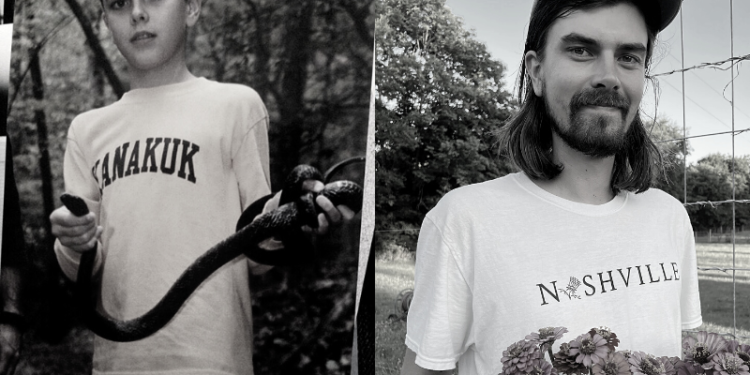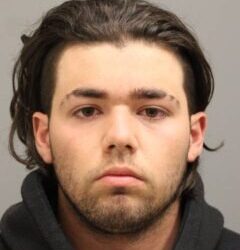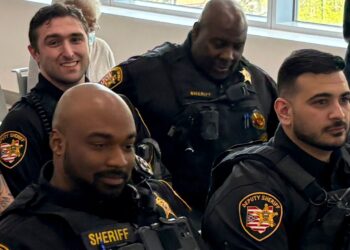Over a decade ago, when serial abuser and former camp counselor Pete Newman was arrested and a child sexual abuse case was settled with one of the largest evangelical sports camps in the country, many victims, their families, and the public, thought that was the end of it. Now, Logan Yandell is suing the camp for lying about its knowledge of abuse, joining with other accusers in a fight to hold Kanakuk Camp accountable for their role.
Yandell filed his lawsuit alleging fraud against the Branson, Missouri sports camp in November, and the case has moved forward despite pushback from the camp.
Aside from alleging sexual abuse for decades, the lawsuit cited reporting by journalist Nancy French that in 2003, the same year Newman would meet Logan Yandell and begin abusing him for the next five years, a Kanakuk staff member, Will Cunningham, explicitly advised the camp that Newman should be fired because of his behavior and allegations against him.
Those allegations included sexual abuse of children and nude swimming, which Newman was allegedly caught doing with children years earlier in 1999.
According to court documents, Kanakuk’s CEO Joe White denied Cunningham’s request to terminate Newman.
“If they had done the right thing in 1999, and in 2003, and other instances of which they caught him, then many, many people would not have been abused and I wouldn’t have been abused and other people wouldn’t have been abused that have now died by suicide,” Yandell told The Crime Report. “Kanakuk has got blood on their hands”
When Newman was hired as a Kanakuk Camp counselor at 19 years old in 1995, with no references or a background check, the camp had already fired Corbie Dale Grimes for “inappropriate behavior and poor judgment” five years earlier, according to a cease and desist letter by lawyer Edward C. Tredennick claiming misleading information on a Kanakuk sexual abuse advocacy website.
By the time Newman was hired in 1995, the camp was known in the realm of Christian camps with multiple celebrity endorsements including from Bill Cosby shortly after Newman joined the camp in 1997.
Over the next 14 years, Newman would rise up the ranks of the camp and be featured in promotional campaigns as camp director for the Father/Son
Ministry as he amassed multiple child sexual assault crimes and allegations still coming to the surface, with one civil lawsuit saying Newman abused 57 underage people with relation to Kanakuk.
In 2010, Newman was sentenced to two life sentences for eight counts of sexual abuse after he admitted to sexual abuse of over a dozen kids. Yandell and his family received a settlement from the camp at the time.
“My parents have been super supportive this entire time. Obviously, whenever someone goes through this type of abuse, the entire family kind of goes through it as well,” Yandell said.
Yandell’s parents are still frustrated with the legal process and the alleged cover-up by Kanakuk after receiving their initial settlement in 2010.
“I mean, [my parents] were the ones that were initially lied to, you know, it was their job to protect me and to settle with Kanakuk when I did, when my abuse first came out, and Kanakuk pushed that on them very hard,” Yandell said.
Yandell’s lawyers allege fraud against the camp for withholding information during the settlement case, with accusations that Newman had sexually abused campers beginning shortly after he joined Kanakuk Camp in the 1990s. Yandell is seeking damages for Kanakuk’s alleged fraud and is seeking out a jury by trial with a venue now set for Christian County, Missouri.
Kanakuk is alleged to have withheld key facts about Newman’s behavior and pattern of sexual abuse for years. Reporting by Nancy French shows that although even Kanakuk CEO Joe White has said sexual abuse was never an issue they knew of at the camp and claimed sexual abuse just wasn’t “part of our culture” courts documents given to the civil court by the camp show a long past of complaints against Newman with multiple other complaints about people who worked for the camp posted on the website called Facts About Kanakuk created by No More Victims, an organization created by a group of survivors and victim advocates according to a press release announcing the site.
Yandell ultimately hopes for transparency and accountability from Kanakuk. As he has talked to other survivors over the years, he says they all just want Kanakuk to admit what he says they knew about the abuse and release victims from non-disclosure agreements (NDAs).
“NDAs are not meant for victims of child sex abuse, they’re meant for trade secrets,” Yandell said.
“My parents asked Joe White the night that I disclosed to my father that I was sexually abused by Pete Newman for years if there was ever any suspicion whatsoever that Pete Newman was a risk to be around children,” Yandell said.
“[White] point blank told my father that this came as a big of a shock to him as it did to my parents,” Yandell said.
Yandell’s parents had a suspicion of Newman’s abuse because of how much time Yandell and Newman spent together. According to Yandell, their time together included overnight trips to China, mission trips, and going on promotional trips with Newman to promote the camp at homes of prospective families, all forms of one-on-one alone time directly against the rules of the camp at the time.
“[White] acted like this was just beyond fathomable. He told my parents that he never suspected anything, that this is just a huge shock and one of the biggest, craziest things that’s ever happened,” Yandell said. “[Kanakuk] are pushing victims into the settlements without telling the full story or the full truth.”
“I mean, I wish I could say it’s a unique case,” Brian Kent, one of Yandell’s attorneys who is a founding partner of his own trauma-informed law firm, Laffey Bucci Kent and heads their crime victim department, told The Crime Report.
“Unfortunately, with organizations that whether they’re religious or not, that are trying to protect their persona or their public image, or if it can hurt their bottom line, oftentimes, they do things in order to keep information from getting out to the public,” Kent said.
Kent brought Yandell’s case to court in November after information about Newman’s failed firing in 2003 came to the service. Kent says the courts allowing Yandell to proceed with his case against Kanakuk after the camp tried to get the case dismissed entirely is a big win for a case they are hoping can now be heard in front of a full jury.
“[Kanakuk] had information, we believe that Peter Newman was a clear danger to children, they decided not to terminate him at that point, but continue to allow him to be exposed to kids, despite that known danger,” Kent said.
In the documents Yandell and his team submitted to the court, White appears to have blatantly lied to Yandell’s parents about what he knew. This may have happened to the parents of many other Newman victims according to Kent.
“To make it worse, after additional children were learned to have been abused. We believe that they went on this campaign to speak to those victims who had been identified as being abused and had misrepresented to them with regards to their actual knowledge concerning the danger that Peter Newman posed,” Kent said. “And that’s what happened to Logan and his family, unfortunately.”
Logan is also hoping the state can allow others to bring their cases to court soon too through Missouri bill HB 367 which is now stalled in the state senate after passing in the House.
The bill would have allowed survivors of childhood sexual abuse including the survivors of childhood sexual abuse at Kanakuk, who testified to in front of a house committee earlier this year would raise the statute of limitations in filing childhood sexual abuse charges against an organization from 28 years old.
“Many of the victims that have not come forward that are coming forward now have now aged out of being able to hold them accountable,” said Yandell. The average age of disclosure is currently 52 years old with Yandell being one of the young known victims to come out against sexual abuse at Kanakuk.
“One thing that I hope is not lost is people that are no longer with us such as Trey Carlock, he died in 2019. He was a victim of sexual abuse at Kanakuk and he died by suicide shortly after he settled,” said Yandell.
The house committee who heard from Kanakuk abuse survivors also noted 15 “deaths of despair” related to Kanakuk abuse survivors and possibly their inability to speak out.
Kanakuk expresses “devastation over the deceptive practices” of Newman in a public response on their website. Kanakuk’s statement goes on to call Newman “a master of deception – fooling not only Kanakuk but also his friends, neighbors, and even his own family.”
Kanakuk’s CEO Joe White released a non-dated public apology that is a little hard to follow, where he seems to contradict the pushback Yandell and his legal team faced in their lawsuit:
“You may feel that you cannot share your story out of fear of legal consequences. If this is you, know that Kanakuk and I will not object to you sharing your story with those who can support your healing. The freedom to tell your story should not be a question – and to us, it’s not. I am opposed to any legal maneuver or action meant to suppress the voice of victims.”
White’s apology then goes on to seemingly tell survivors to not share the terms of their settlement for their own protection and not for that of Kanakuk.
“Since most agreements involve insurance companies who may choose to defend their interests, you should keep the terms of your settlement confidential,” said White’s apology letter.
“We don’t know what Kanakuk’s position is going to be other than what they have done so far, which is to try to poke holes in the complaint that we have filed on a legal basis,” said Kent
Despite Yandell’s gratitude for being able to speak out for himself these last few years, fighting for other survivors is ultimately what motivates him to continue to share his story.
“That’s the reason why our laws exist in the first place, is it not? To fight for victims who experienced crime, and just stick up for children,” Yandel said. “This institution’s actions ultimately wound up in myself getting sexually abused, molested, and raped from nine to 13 and that’s the sad reality, you know, I mean, there’s not a good side of the story.”
Yandell does not expect this case to heal the childhood trauma he has from his time at Kanakuk, but he believes that by examining and discussing this story within the court system, people can actively evaluate whether our laws prioritize the rights of child sex abuse victims or aim to shield institutions.
“Do our laws align with standing up for and in fighting for victims of child sex abuse? Or do they point towards protecting an institution?” Yandell said.



























